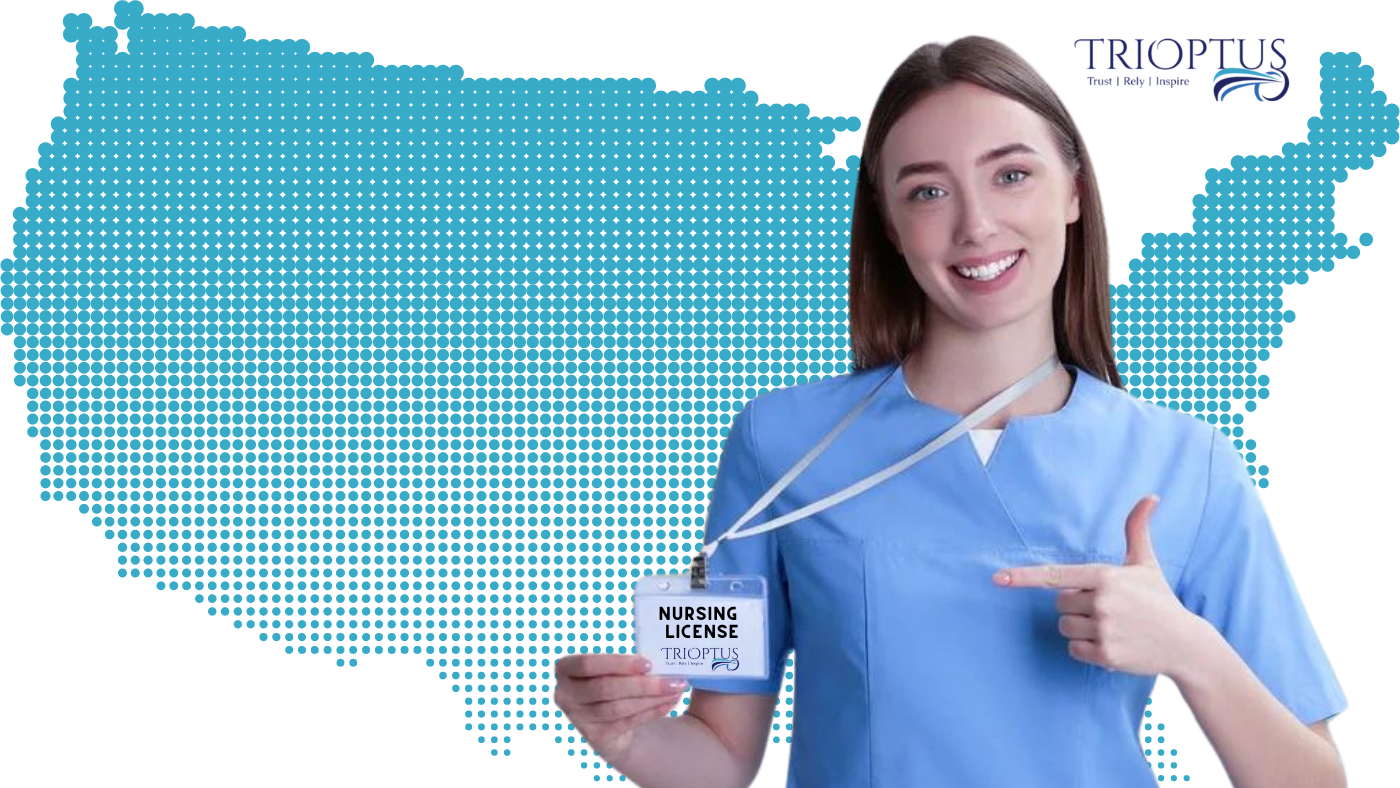Practical Licensing Tips for Travel Nurses

Becoming a travel nurse is an exciting career path that combines your passion for nursing with the adventure of traveling, meeting new people, and working in different environments. But once the initial thrill wears off, you might feel overwhelmed by the technical aspects, like state regulations and licensing paperwork.
This guide will walk you through the key steps to simplify the process and make your journey into travel nursing as smooth as possible.
Travel Nursing: A Quick License Guide
To start working as a travel nurse, you need to have a valid nursing license in the state where you’ll be practicing. While some employers allow you to interview without the license, you usually need it before you can sign a contract.
If you're already a licensed nurse in the U.S., getting an endorsement for another state is typically straightforward but may come with fees. If your home state participates in the Enhanced Nurse Licensure Compact (eNLC), you're in luck—this multistate license allows you to work in any Compact state with minimal hassle. However, international nurses face a more complex process.
Compact State License for Travel Nurses
A Compact license allows you to work in any of the 42 states that have adopted the Enhanced Nurse Licensure Compact (eNLC). However, your primary residence must be in one of these states. If you live in a non-Compact state like New York and want to work in a Compact state like Arizona, you’ll need to apply for a single-state license for Arizona.
Make sure to keep your Compact license active by maintaining your home state licensure. If your home state license lapses, you’ll need to obtain individual licenses for each state you plan to work in, which can be time-consuming and costly.
Single-State Licenses: More Planning, More Paperwork
If your home state is not part of the Compact, or if you're traveling to a non-Compact state, you’ll need to apply for a single-state license. This process usually requires more paperwork, so it’s essential to stay organized. You’ll need to provide proof of your existing license through an endorsement, meaning you won’t have to retake the NCLEX exam.
Stay Organized While Applying for Licenses
Keeping track of the paperwork can be a challenge, but having a system will save you time and stress. I recommend creating a folder on your phone for all the necessary documents, so you can easily access and send them when needed. Many states also offer online checklists to guide you through the process.
License Renewal and Travel Nursing
Be mindful of renewal dates for your licenses, especially if you’re applying for multiple states. Some states have strict renewal periods, like Washington and Colorado, and you don’t want to end up paying for a license you won’t use.
Make sure you check the expiration date before you apply. For example, if you secure a contract for May but the license you applied for expires in April, you’ll face extra fees to renew it before starting your job.
Background Checks and Fingerprinting: Be Prepared
Each state has different requirements for background checks and fingerprinting. Almost all states require background checks, and the processing time can vary. Some states also require fingerprinting, which can be done either on a physical card or digitally.
If you need a hard copy, your best bet is to visit a police station. If you go digital, check if the state has a preferred agency for processing fingerprints.
What Documents Do You Need?
Most states allow you to apply for a license online, on paper, or even in person. Make sure all the required documents are ready and complete. Many states use the NURSYS system, a national nurse licensure database, to verify your current license.
In addition to your nursing license, you might need to submit transcripts, a proof of residence form, or other education certificates.
Licensure Fees and What Agencies Cover
The fees for obtaining a nursing license can vary depending on the state. These costs may include application fees, fingerprinting, background checks, and transcripts. However, most travel nursing agencies will reimburse you for the license fee once you complete your contract. Make sure to discuss this with your recruiter and include it in your contract.
Keep Track of Everything
As a travel nurse, your contract is everything. It defines your housing, pay rates, patient assignments, and any reimbursements. Keep a record of all receipts, including those for licensure fees. At TriOptus, we always recommend our nurses to take a photo of each receipt and save it in a folder on their phone for easy access.
With good organization and attention to detail, you can make travel nursing a rewarding and manageable career. TriOptus is an equal opportunity employer and we offer a variety of travel opportunities to Nurses from all across US, Canada and Mexico. We are a one stop shop for all your travel needs ranging from finding high paying jobs, procuring licences and certifications, keeping your credentials up-to-date, keeping your health documents in check, consulting tax accountants to file your tax returns, to helping you build a thriving career in nursing.
If interested in learning more about travel nursing, please reach out to us at [email protected] with your latest resume or schedule a discussion with one of our career experts by visiting the chatbot located on our website www.trioptushealth.com.